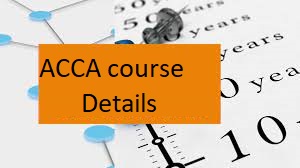The finance and accounting sectors continually evolve, with a growing demand for professionals equipped with globally recognized qualifications. Among the globally sought-after certifications, ACCA reigns supreme. In this article, we dive deep into the ACCA course details, elucidating the significance and components of this esteemed qualification.
The Mystery of the Acronym: ACCA Full Form
Amidst the jargon of the financial world, many abbreviations float around. Among these, ACCA holds a prominent place. But what does ACCA stand for? The ACCA full form is “Association of Chartered Certified Accountants”. This global entity is renowned for its rigorous curriculum, designed to mold individuals into proficient accountants ready to tackle the challenges of the dynamic financial world.
Understanding the ACCA Course Structure
The ACCA qualification isn’t just a certification; it’s a journey that transforms students into financial experts. Let’s unpack this journey step by step:
-
Applied Knowledge: As an introduction to the financial realm, this section encompasses three exams: Accountant in Business (AB), Management Accounting (MA), and Financial Accounting (FA). These modules aim at instilling foundational financial concepts and principles in the students.
-
Applied Skills: Elevating the complexity, this phase consists of six examinations that nurture hands-on skills. The exams include Corporate & Business Law (LW), Performance Management (PM), Taxation (TX), Financial Reporting (FR), Audit & Assurance (AA), and Financial Management (FM).
-
Strategic Professional: Culminating the ACCA course, this segment is divided into essentials and options. The mandatory exams are Strategic Business Leader (SBL) and Strategic Business Reporting (SBR). Additionally, students select two from the following options: Advanced Financial Management (AFM), Advanced Performance Management (APM), Advanced Taxation (ATX), and Advanced Audit & Assurance (AAA).
Eligibility Criteria and Timeframe
The ACCA prides itself on its inclusive nature, allowing a broad spectrum of students to embark on this journey. The fundamental eligibility requirement is two A-levels and three GCSEs or their equivalent in five distinct subjects, inclusive of English and Mathematics. University graduates, particularly those from accounting or finance disciplines, might be privy to exemptions in specific papers.
While the course’s duration is flexible, most candidates complete their ACCA qualification within three to four years. However, given the course’s demanding nature, many opt for a balanced approach, taking up to five years.
Pedagogy and Evaluation
The ACCA course offers various learning methodologies, catering to the diverse needs of global students. From traditional classroom teachings to online tutorials and self-study modules, there’s a fit for every learner.
Assessment is predominantly through computer-based exams, held quarterly in March, June, September, and December. While the passing criteria hover around the 50% mark, each exam’s exact requirements can vary.
Why Embark on the ACCA Journey?
-
Worldwide Recognition: The ACCA qualification is recognized in over 180 countries, ensuring global career opportunities for its members.
-
Comprehensive Curriculum: Beyond the core financial and accounting subjects, ACCA also integrates elements of management, strategy, and ethics, producing well-rounded professionals.
-
Versatile Career Trajectories: ACCA qualifiers are not limited to traditional accounting roles. They can branch out into areas like financial consultancy, audit management, and tax consultancy.
-
Enduring Learning: The ACCA ethos promotes continuous learning. Post qualification, members are encouraged to engage in Continuous Professional Development (CPD), ensuring they remain at the forefront of financial knowledge.
Conclusion
The ACCA qualification is more than a certificate; it’s a testament to a professional’s expertise, commitment, and global aptitude in the finance sector. By delving into the ACCA course details, one can discern the depth, rigor, and holistic nature of this program. Whether you’re an aspiring student or a professional contemplating a career shift, the ACCA journey promises a transformative experience, opening doors to global opportunities and accolades. If finance is your calling, ACCA might just be your compass.


